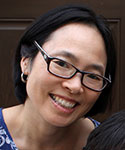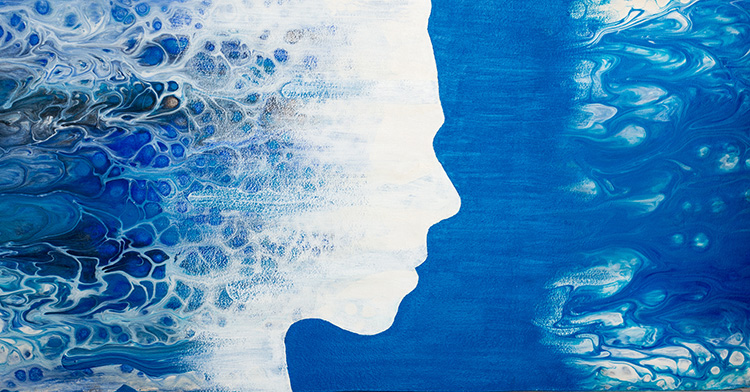Like so many other Asian Americans who watched Domee Shi’s recently released film, “Turning Red,” I was delighted by the story of Meilin Lee, a vibrant young Asian Canadian girl trying to navigate her way through the turbulence of puberty.
(Note: this article contains spoilers.)
Young Meilin wrestles with the typical turmoil of any 13-year-old, complicated by an atypical challenge: every time she gets overwhelmed by her emotions, she turns into a red panda. The stress for her of handling the changes of adolescence is magnified by conflicts at home that go against her strong sense of devotion to her family.
At the very opening of the film, Meilin announces emphatically that the first rule in her family is “Honor your parents” — words that ring familiarly true for many of us. Of course, how that plays out looks different from family to family.
In my family, my parents weren’t particularly strict or controlling. They never pressured me or my sister in school or pushed us toward specific career paths, and they’ve always been amazingly supportive of us. They encouraged us to explore our own interests, and it’s because of their attentiveness that I was able to get diagnosed and start treatment for bipolar disorder at a relatively young age in high school.
Yet as accepting as they’ve been, my parents still weren’t always comfortable with intense feelings or conflict. When I was growing up, there wasn’t much conversation at home about weighty topics like depression, bodily changes or racism, for instance; nor was there room for much open discussion about things like gender roles, dating or teenage malaise.
I appreciate “Turning Red” not only for its connection to Asian American life but also for the ways it celebrates girl power and resistance to certain silences and pressures. As it affirms the complex richness of bicultural families, it also demonstrates the universal importance of embracing the messy parts of life and one’s whole self, emotional inner panda and all.
While Meilin’s family in the film has a recognizably Asian American feel to it, Asian American homes are certainly not the only places where it’s challenging to figure out and embrace one’s full, multidimensional identity.
Most families exert normative pressures of some kind, and many avoid addressing challenging issues. There are too few spaces where people openly welcome each other’s clumsy, untamed panda selves — and the church family is no exception.
Our faith communities are often set in ways that don’t make room for our full, chaotic humanity. Much like Meilin’s mother in “Turning Red,” we have difficulty accepting the more unruly aspects of life and faith.
A lot of church culture still gives the impression that “good” Christians will exhibit steady cheerfulness, unwavering faith in a rigid set of beliefs defined by the church and a commitment to tireless service for the kingdom. We might welcome questions from seekers, but we tend to expect them to grow out of troubling questions as they move along in their faith journeys. It’s as if “strong” Christians are not supposed to ask tough questions.
Like some overly controlling parents, our churches sometimes seem to prioritize dutiful obedience and loyalty over true — and untamable — flourishing in Christ.
We’re afraid to admit our own limitations and don’t know how to deal with diversity of opinion or theology in constructive ways. Though we might want to be more open in principle, we act as if things like faith crises, mental health issues, important conflict and complex identities are taboo. And many leaders still shame people who struggle for too long with things like anxiety or depression.
While churches go out of their way to empower some members of their communities — often those who are male, middle- or upper-class and white — to raise their voices, they often dismiss or shame women, youth and people of color who express their full humanity or holy discontent with the entrenched structures that be.
Thus, even while teaching about a loving God, the church often projects an image of God as a rigid judge who wants tidy and docile followers and is scandalized by the embodied messiness of life, unwilling to roll with us through all the stinky, snotty, bloody and poopy parts.
These tendencies in the church are especially consequential for those who already have deep self-critical tendencies, like myself. It’s no wonder that many of us live with an inner image of God that is so much like the raging giant mama panda in the movie.
It’s easier for us to listen to our inner tyrants than to think God might appreciate our wild, playful panda sides. Despite our belief in grace, we worry that God is constantly disappointed in us.
More than any sermon or church teaching, what has helped start healing my image of God over the years is my family and a sisterhood of friends who have encouraged me to value my whole self — huge feelings, tiresome neuroses, heretical tendencies and all.
Several of my friends who are therapists have told me that it’s good to “feel your feelings” — even the dark and messy ones. They affirm that I don’t have to “get over” depression or clean myself up in order to be loved by them or fully embraced by God, and they encourage me to voice my perspectives, even when that might make some people uncomfortable.
These friends who help me believe in a more gracious God are not unlike the circle of quirky friends who welcome Meilin as her whole self. By accepting her panda side so openly, Meilin’s friends help her feel comfortable in her own skin, furry or not. The permission they give her to welcome her panda self is in fact permission to be fully human.
With all the crises and conflicts happening in the church these days, we need less fearful attachment to quiet order and more openness to the unwieldy panda side of life. We could reassure each other that it’s normal for life to be messy and that God does not run away from any part of our reality or any part of ourselves, no matter how beastly.
We all need friends who know and accept us as we are, as Meilin’s friends do for her. We need community that gives us permission to be simply human, and we need to know that God gives us that permission, too.
More than any sermon or church teaching, what has helped start healing my image of God over the years is my family and a sisterhood of friends who have encouraged me to value my whole self.
















